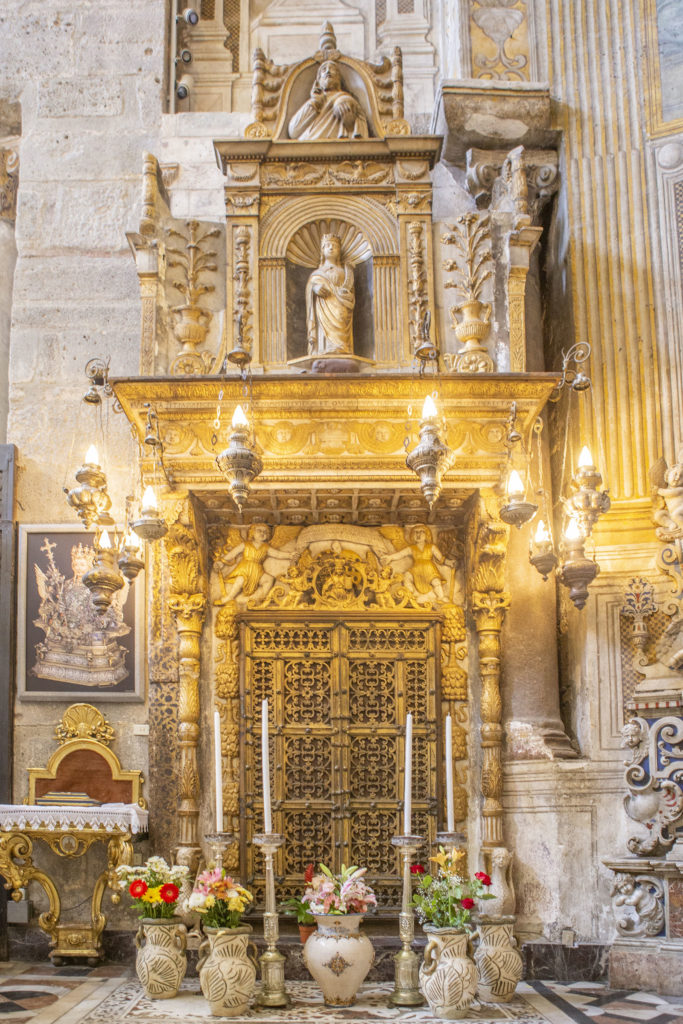La cappella di
Sant'Agata
(St. Agatha) è uno dei luoghi più amati dai catanesi: situata nell’
Apse
destro della cattedrale, fu voluta dal viceré
Ferdinando d'Acuňa
, ma, dopo la sua morte, della costruzione si occupò la moglie Maria d’Avila.
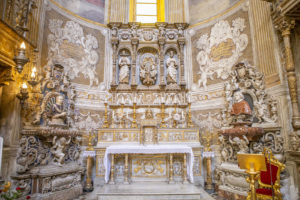
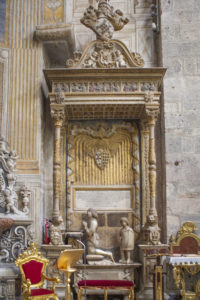
I lavori iniziarono nel 1495, a cura dello scultore Antonello Freri da Messina, e il risultato è ancora oggi visibile, un trionfo di luci e colori.
Per la pavimentazione si scelsero marmi di varie tinte: nero, bianco, grigio, rosso; per le pareti sono le sculture a dare vitalità ai muri, ulteriormente arricchite nelle parti più alte da meravigliosi affreschi.
Tutta questa luminosità, data anche e soprattutto dall’uso dell’oro, contrasta con la cancellata in ferro battuto che divide la cappella dal resto della chiesa.
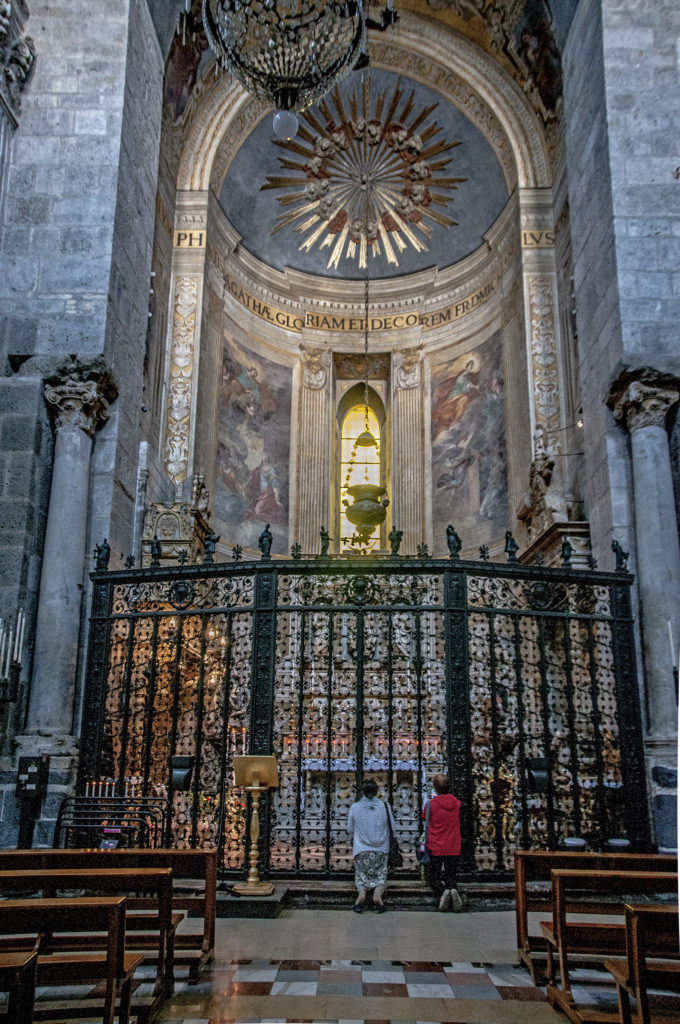
L’interno presenta una splendida decorazione dietro l’altare dove si alternano tra le sculture il bianco e l’oro. A catturare l’attenzione è il
retablo
.
Posto dietro l’altare, esso è una scultura con al centro la glorificazione di Sant’Agata che viene presentata a Cristo dalla Vergine, a destra e sinistra, rispettivamente, San Paolo e San Pietro, e in alto chiudono la composizione i quattro evangelisti: San Marco, San Luca, San Matteo e San Giovanni.
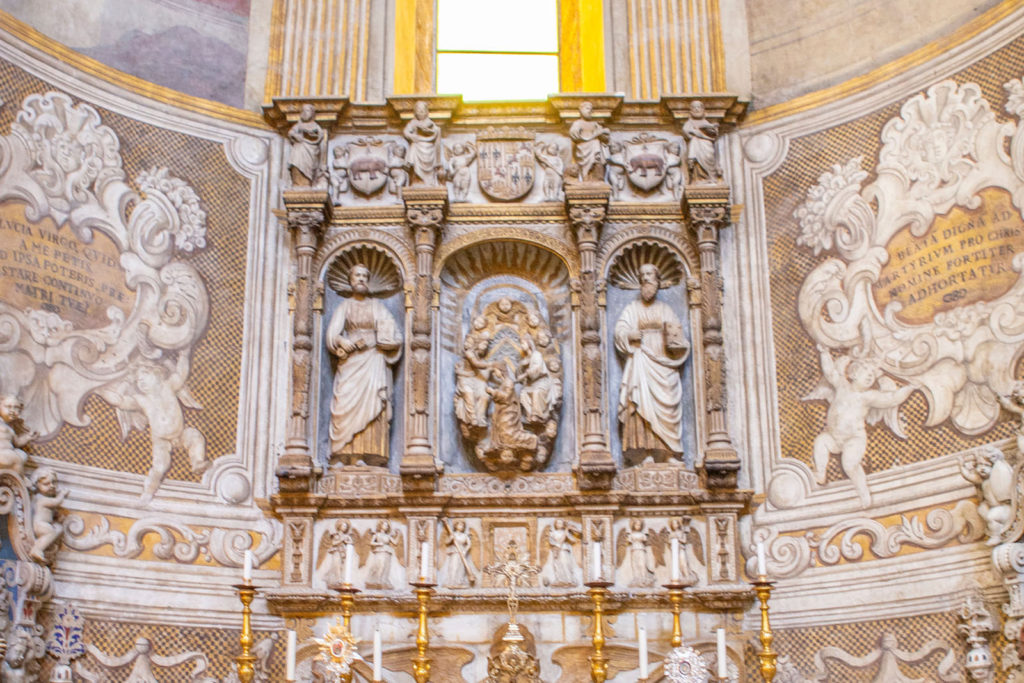
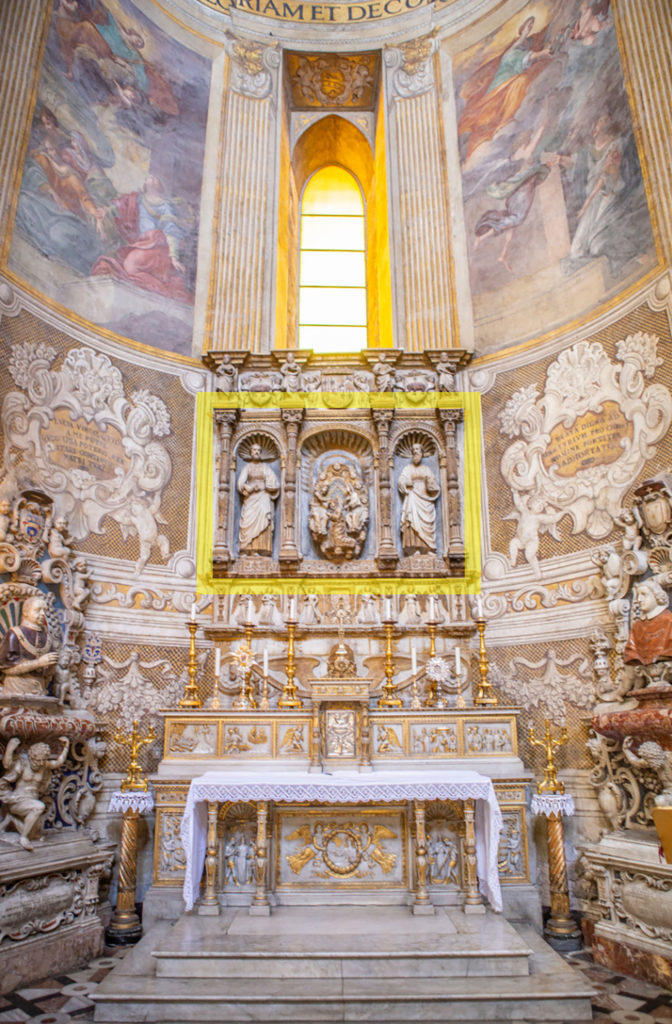
A destra dell’altare, si trova il monumento sepolcrale di Ferdinando d’Acuňa, a sinistra, una cancellata dorata invece nasconde la “cammaredda”: una stanza di piccole dimensioni dove, in brillanti scrigni d’argento, si conservano le reliquie di Sant’Agata.
